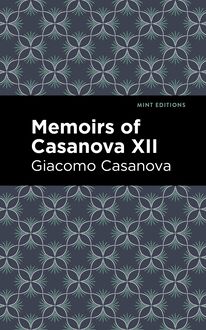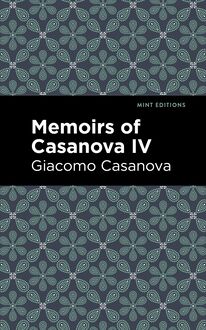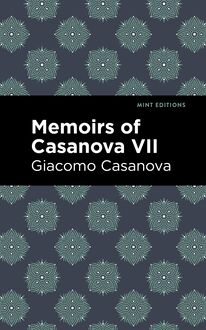-
 Univers
Univers
-
 Ebooks
Ebooks
-
 Livres audio
Livres audio
-
 Presse
Presse
-
 Podcasts
Podcasts
-
 BD
BD
-
 Documents
Documents
-
- Cours
- Révisions
- Ressources pédagogiques
- Sciences de l’éducation
- Manuels scolaires
- Langues
- Travaux de classe
- Annales de BEP
- Etudes supérieures
- Maternelle et primaire
- Fiches de lecture
- Orientation scolaire
- Méthodologie
- Corrigés de devoir
- Annales d’examens et concours
- Annales du bac
- Annales du brevet
- Rapports de stage
La lecture à portée de main
Vous pourrez modifier la taille du texte de cet ouvrage
Découvre YouScribe en t'inscrivant gratuitement
Je m'inscrisDécouvre YouScribe en t'inscrivant gratuitement
Je m'inscrisEn savoir plus
Vous pourrez modifier la taille du texte de cet ouvrage
En savoir plus

Description
Jane Addams, the co-founder of Hull House, the famous settlement home, writes about her experiences and insights in her autobiography, Twenty Years at Hull House. As a child growing up in Illinois, Addams suffered from Pott’s Disease, which was a rare infection in her spine. This disease caused her to contract many other illnesses, then because of these aliments, Addams was self-conscious of her appearance. She explains that she could not play with other children often due to a limp, a side effect to her illnesses. Still, she is able to provide relatable and even amusing childhood anecdotes. Addams was very close to her father. She admired him for his political work, which likely inspired her own interest and attention to the social problems of her society. In a time invested with xenophobia and cruelty towards immigrants, Addams bought land in Chicago and co-founded a settlement house named Hull House. There, Addams sought to improve the lives of immigrants and the poor by providing shelter, essential social services, and access to education. Addams served as an advocate not only for the impoverished and immigrants, but also for women. She was a leader within the women’s suffrage movement, determined to expand the work she did for her community to a national scale.
Twenty Years at Hull House provides both a conversation about social issues and an example of how to act against them. Though originally published in 1910, Addams autobiography provides social discourse that is not only still relevant, but also considered radical by some. Addams’ autobiography was well received when it was first released, impacting many key reform movements. Twenty Years at Hull House still carries that effect today, inspiring its readers to improve their community and advocate for those in need.
This edition of Twenty Years at Hull House by Jane Addams features a new, eye-catching cover design and is printed in a readable font, ready to inspire readers to follow the footsteps and musings of activist Jane Addams.
Sujets
Informations
| Publié par | Mint Editions |
| Date de parution | 01 décembre 2020 |
| Nombre de lectures | 0 |
| EAN13 | 9781513272719 |
| Langue | English |
Informations légales : prix de location à la page 0,0500€. Cette information est donnée uniquement à titre indicatif conformément à la législation en vigueur.
Extrait
Twenty Years at Hull-House
Jane Addams
Twenty Years at Hull-House was first published in 1910.
This edition published by Mint Editions 2020.
ISBN 9781513267715 | E-ISBN 9781513272719
Published by Mint Editions®
minteditionbooks.com
Publishing Director: Jennifer Newens
Design & Production: Rachel Lopez Metzger
Typesetting: Westchester Publishing Services
C ONTENTS P REFACE 1. E ARLIEST I MPRESSIONS 2. I NFLUENCE OF L INCOLN 3. B OARDING -S CHOOL I DEALS 4. T HE S NARE OF P REPARATION 5. F IRST D AYS AT H ULL -H OUSE 6. T HE S UBJECTIVE N ECESSITY FOR S OCIAL S ETTLEMENTS 7. S OME E ARLY U NDERTAKINGS AT H ULL -H OUSE 8. P ROBLEMS OF P OVERTY 9. A D ECADE OF E CONOMIC D ISCUSSION 10. P IONEER L ABOR L EGISLATION IN I LLINOIS 11. I MMIGRANTS AND T HEIR C HILDREN 12. T OLSTOYISM 13. P UBLIC A CTIVITIES AND I NVESTIGATIONS 14. C IVIC C OOPERATION 15. T HE V ALUE OF S OCIAL C LUBS 16. A RTS AT H ULL -H OUSE 17. E CHOES OF THE R USSIAN R EVOLUTION 18. S OCIALIZED E DUCATION
P REFACE
Every preface is, I imagine, written after the book has been completed and now that I have finished this volume I will state several difficulties which may put the reader upon his guard unless he too postpones the preface to the very last.
Many times during the writing of these reminiscences, I have become convinced that the task was undertaken all too soon. One’s fiftieth year is indeed an impressive milestone at which one may well pause to take an accounting, but the people with whom I have so long journeyed have become so intimate a part of my lot that they cannot be written of either in praise or blame; the public movements and causes with which I am still identified have become so endeared, some of them through their very struggles and failures, that it is difficult to discuss them.
It has also been hard to determine what incidents and experiences should be selected for recital, and I have found that I might give an accurate report of each isolated event and yet give a totally misleading impression of the whole, solely by the selection of the incidents. For these reasons and many others I have found it difficult to make a faithful record of the years since the autumn of 1889 when without any preconceived social theories or economic views, I came to live in an industrial district of Chicago.
If the reader should inquire why the book was ever undertaken in the face of so many difficulties, in reply I could instance two purposes, only one of which in the language of organized charity, is “worthy.” Because Settlements have multiplied so easily in the United States I hoped that a simple statement of an earlier effort, including the stress and storm, might be of value in their interpretation and possibly clear them of a certain charge of superficiality. The unworthy motive was a desire to start a “backfire,” as it were, to extinquish two biographies of myself, one of which had been submitted to me in outline, that made life in a Settlement all too smooth and charming.
The earlier chapters present influences and personal motives with a detail which will be quite unpardonable if they fail to make clear the personality upon whom various social and industrial movements in Chicago reacted during a period of twenty years. No effort is made in the recital to separate my own history from that of Hull-House during the years in which I was “launched deep into the stormy intercourse of human life” for, so far as a mind is pliant under the pressure of events and experiences, it becomes hard to detach it.
It has unfortunately been necessary to abandon the chronological order in favor of the topical, for during the early years at Hull-House, time seemed to afford a mere framework for certain lines of activity and I have found in writing this book, that after these activities have been recorded, I can scarcely recall the scaffolding.
More than a third of the material in the book has appeared in The American Magazine, one chapter of it in McClure’s Magazine, and earlier statements of the Settlement motive, published years ago, have been utilized in chronological order because it seemed impossible to reproduce their enthusiasm.
It is a matter of gratification to me that the book is illustrated from drawings made by Miss Norah Hamilton of Hull-House, and the cover designed by another resident, Mr. Frank Hazenplug. I am indebted for the making of the index and for many other services to Miss Clara Landsberg, also of Hull-House.
If the conclusions of the whole matter are similar to those I have already published at intervals during the twenty years at Hull-House, I can only make the defense that each of the earlier books was an attempt to set forth a thesis supported by experience, whereas this volume endeavors to trace the experiences through which various conclusions were forced upon me.
Chapter 1
E ARLIEST I MPRESSIONS
On the theory that our genuine impulses may be connected with our childish experiences, that one’s bent may be tracked back to that “No-Man’s Land” where character is formless but nevertheless settling into definite lines of future development, I begin this record with some impressions of my childhood.
All of these are directly connected with my father, although of course I recall many experiences apart from him. I was one of the younger members of a large family and an eager participant in the village life, but because my father was so distinctly the dominant influence and because it is quite impossible to set forth all of one’s early impressions, it has seemed simpler to string these first memories on that single cord. Moreover, it was this cord which not only held fast my supreme affections, but also first drew me into the moral concerns of life, and later afforded a clew there to which I somewhat wistfully clung in the intricacy of its mazes.
It must have been from a very early period that I recall “horrid nights” when I tossed about in my bed because I had told a lie. I was held in the grip of a miserable dread of death, a double fear, first, that I myself should die in my sins and go straight to that fiery Hell which was never mentioned at home, but which I had heard all about from other children, and, second, that my father—representing the entire adult world which I had basely deceived—should himself die before I had time to tell him. My only method of obtaining relief was to go downstairs to my father’s room and make full confession. The high resolve to do this would push me out of bed and carry me down the stairs without a touch of fear. But at the foot of the stairs I would be faced by the awful necessity of passing the front door—which my father, because of his Quaker tendencies, did not lock—and of crossing the wide and black expanse of the living room in order to reach his door. I would invariably cling to the newel post while I contemplated the perils of the situation, complicated by the fact that the literal first step meant putting my bare foot upon a piece of oilcloth in front of the door, only a few inches wide, but lying straight in my path. I would finally reach my father’s bedside perfectly breathless and having panted out the history of my sin, invariable received the same assurance that if he “had a little girl who told lies,” he was very glad that she “felt too bad to go to sleep afterward.” No absolution was asked for or received, but apparently the sense that the knowledge of my wickedness was shared, or an obscure understanding of the affection which underlay the grave statement, was sufficient, for I always went back to bed as bold as a lion, and slept, if not the sleep of the just, at least that of the comforted.
I recall an incident which must have occurred before I was seven years old, for the mill in which my father transacted his business that day was closed in 1867. The mill stood in the neighboring town adjacent to its poorest quarter. Before then I had always seen the little city of ten thousand people with the admiring eyes of a country child, and it had never occurred to me that all its streets were not as bewilderingly attractive as the one which contained the glittering toyshop and the confectioner. On that day I had my first sight of the poverty which implies squalor, and felt the curious distinction between the ruddy poverty of the country and that which even a small city presents in its shabbiest streets. I remember launching at my father the pertinent inquiry why people lived in such horrid little houses so close together, and that after receiving his explanation I declared with much firmness when I grew up I should, of course, have a large house, but it would not be built among the other large houses, but right in the midst of horrid little houses like those.
That curious sense of responsibility for carrying on the world’s affairs which little children often exhibit because “the old man clogs our earliest years,” I remember in myself in a very absurd manifestation. I dreamed night after night that every one in the world was dead excepting myself, and that upon me rested the responsibility of making a wagon wheel. The village street remained as usual, the village blacksmith shop was “all there,” even a glowing fire upon the forge and the anvil in its customary place near the door, but no human being was within sight. They had all gone around the edge of the hill to the village cemetery, and I alone remained alive in the deserted world. I always stood in the same spot in the blacksmith shop, darkly pondering as to how to begin, and never once did I know how, although I fully realized that the affairs of the world could not be resumed until at least one wheel should be made and something started. Every victim of nightmare is, I imagine, overwhelmed by an excessive sense of responsibility and the consciousness of a fearful handicap in the effort to perform what is required; but perhaps never were the odds more heavily
-
 Univers
Univers
-
 Ebooks
Ebooks
-
 Livres audio
Livres audio
-
 Presse
Presse
-
 Podcasts
Podcasts
-
 BD
BD
-
 Documents
Documents
-
Jeunesse
-
Littérature
-
Ressources professionnelles
-
Santé et bien-être
-
Savoirs
-
Education
-
Loisirs et hobbies
-
Art, musique et cinéma
-
Actualité et débat de société
-
Jeunesse
-
Littérature
-
Ressources professionnelles
-
Santé et bien-être
-
Savoirs
-
Education
-
Loisirs et hobbies
-
Art, musique et cinéma
-
Actualité et débat de société
-
Actualités
-
Lifestyle
-
Presse jeunesse
-
Presse professionnelle
-
Pratique
-
Presse sportive
-
Presse internationale
-
Culture & Médias
-
Action et Aventures
-
Science-fiction et Fantasy
-
Société
-
Jeunesse
-
Littérature
-
Ressources professionnelles
-
Santé et bien-être
-
Savoirs
-
Education
-
Loisirs et hobbies
-
Art, musique et cinéma
-
Actualité et débat de société
- Cours
- Révisions
- Ressources pédagogiques
- Sciences de l’éducation
- Manuels scolaires
- Langues
- Travaux de classe
- Annales de BEP
- Etudes supérieures
- Maternelle et primaire
- Fiches de lecture
- Orientation scolaire
- Méthodologie
- Corrigés de devoir
- Annales d’examens et concours
- Annales du bac
- Annales du brevet
- Rapports de stage




















